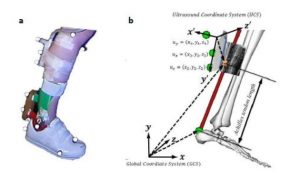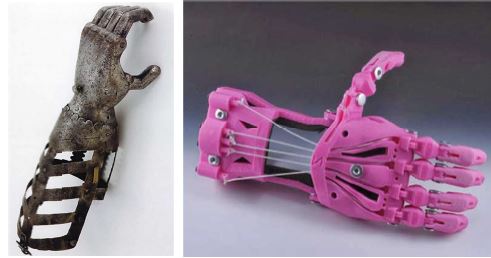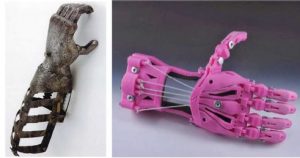Journal article in Journal of Biomechanics:
How does the stiffness of an AFO impact the muscultendon dynamics of the gastrocnemius?
Abstract

Ankle foot orthoses (AFOs) are designed to improve gait for individuals with neuromuscular conditions and have also been used to reduce energy costs of walking for unimpaired individuals. AFOs influence joint motion and metabolic cost, but how they impact muscle function remains unclear. This study investigated the impact of different stiffness ankle foot orthoses (AFOs) on medial gastrocnemius muscle (MG) and Achilles tendon (AT) function during two different walking speeds. We performed gait analyses for eight unimpaired individuals. Each individual walked at slow and very slow speeds with a 3D printed AFO with no resistance (free hinge condition) and four levels of ankle dorsiflexion stiffness: 0.25 Nm / °, 1 Nm / °, 2 Nm / °, and 3.7 Nm / °. Motion capture, ultrasound, and musculoskeletal modeling were used to quantify MG and AT lengths with each AFO condition. Increasing AFO stiffness increased peak AFO dorsiflexion moment with decreased peak knee extension and peak ankle dorsiflexion angles. Overall musculotendon length and peak AT length decreased, while peak MG length increased with increasing AFO stiffness. Peak MG activity, length, and velocity significantly decreased with slower walking speed. This study provides experimental evidence of the impact of AFO stiffness and walking speed on joint kinematics and musculotendon function. These methods can provide insight to improve AFO designs and optimize musculotendon function for rehabilitation, performance, or other goals.

 This award will support clinical trials with 10 kids with CP trying PlayGaitTM in Spring and Summer 2017 along with two quarters of Research Assistant support.
This award will support clinical trials with 10 kids with CP trying PlayGaitTM in Spring and Summer 2017 along with two quarters of Research Assistant support.
